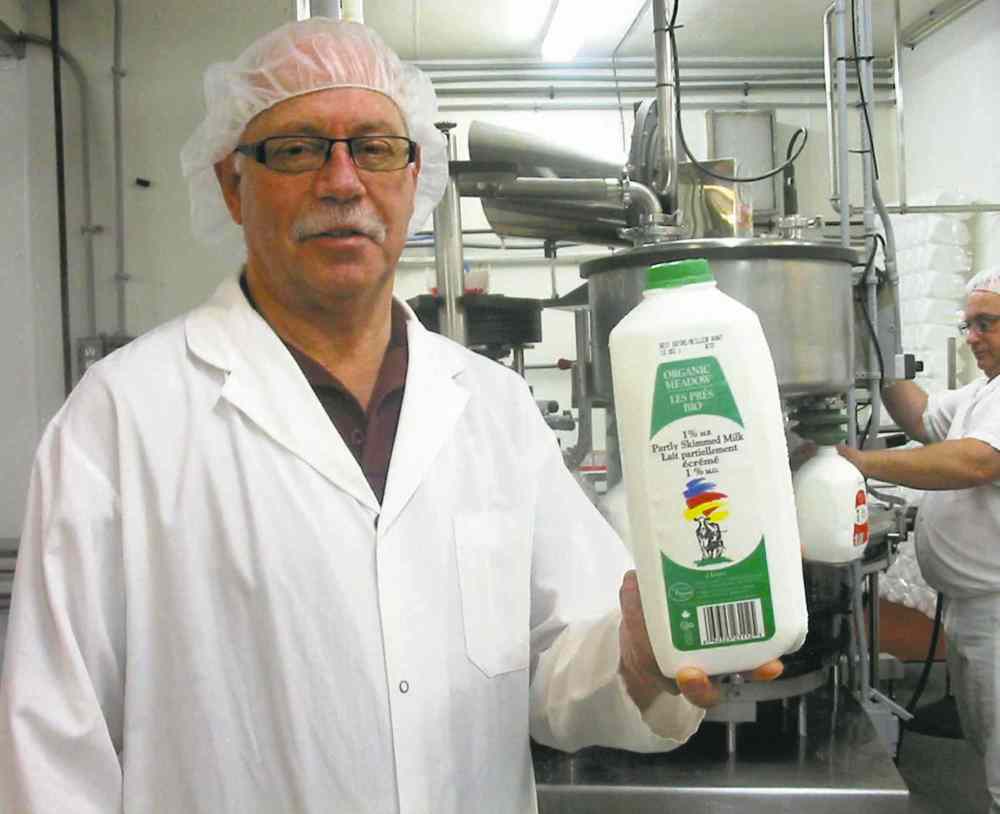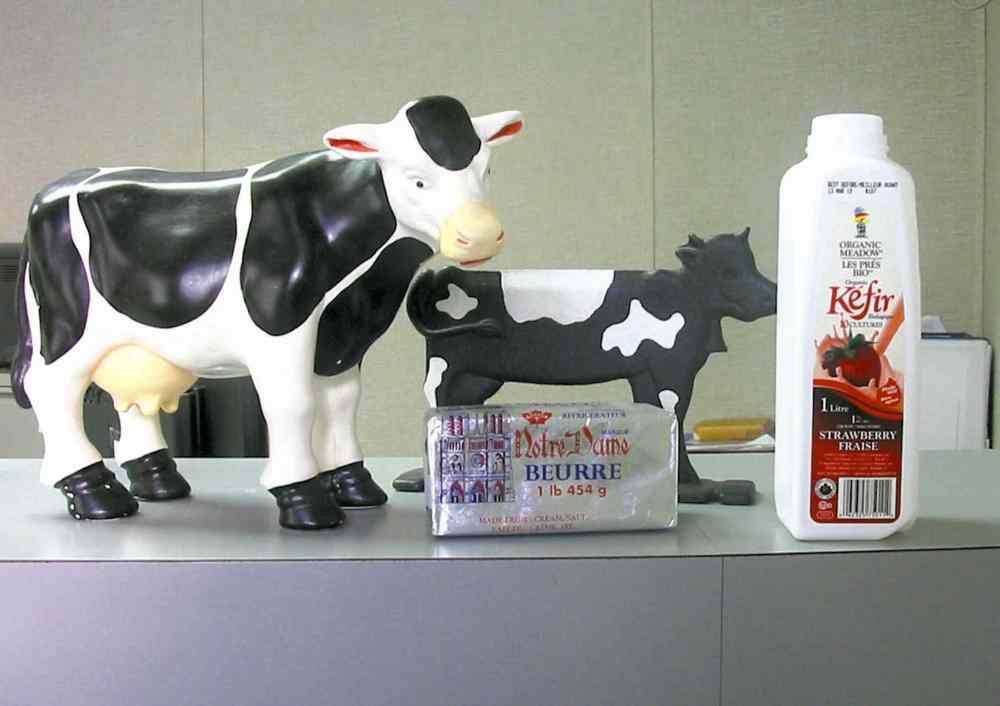Creamery has organic market down pat
Notre Dame plant still churning after 92 years
Advertisement
Read this article for free:
or
Already have an account? Log in here »
To continue reading, please subscribe:
Monthly Digital Subscription
$1 per week for 24 weeks*
- Enjoy unlimited reading on winnipegfreepress.com
- Read the E-Edition, our digital replica newspaper
- Access News Break, our award-winning app
- Play interactive puzzles
*Billed as $4.00 plus GST every four weeks. After 24 weeks, price increases to the regular rate of $19.00 plus GST every four weeks. Offer available to new and qualified returning subscribers only. Cancel any time.
Monthly Digital Subscription
$4.75/week*
- Enjoy unlimited reading on winnipegfreepress.com
- Read the E-Edition, our digital replica newspaper
- Access News Break, our award-winning app
- Play interactive puzzles
*Billed as $19 plus GST every four weeks. Cancel any time.
To continue reading, please subscribe:
Add Free Press access to your Brandon Sun subscription for only an additional
$1 for the first 4 weeks*
*Your next subscription payment will increase by $1.00 and you will be charged $16.99 plus GST for four weeks. After four weeks, your payment will increase to $23.99 plus GST every four weeks.
Read unlimited articles for free today:
or
Already have an account? Log in here »
Hey there, time traveller!
This article was published 16/11/2013 (4352 days ago), so information in it may no longer be current.
NOTRE DAME DE LOURDES — In the 1940s, there were 72 creameries in Manitoba. Creameries are factories where dairy products like milk, cream and butter are prepared.
By 1990, only 11 creameries were left.
Today, one locally owned creamery remains. That’s in Notre Dame de Lourdes, 115 kilometres southwest of Winnipeg.

How does it feel to be the last man standing?
It’s more a sense of relief than anything else, said Guy Roch, president of Notre Dame Creamery, which has been in his family since 1964. His creamery might have closed, too, if the market for organic milk and dairy products hadn’t come along.
Now Notre Dame Creamery processes all the organic milk in Manitoba under the Organic Meadow label, a farmer co-op out of Guelph, Ont. There are four organic dairy farms in Manitoba that supply the milk. The end product is widely available in stores ranging from Vita Health and Organza, to Real Canadian Superstore and Sobeys.
Notre Dame Creamery has been around since 1921. For most of that time the company has been in butter production. At one time, it owned five trucks that went from farm to farm picking up cream to churn into butter.
Those were the days when every dairy farm had a separator and made money selling cream. Now farmers just deliver the raw milk and large milk companies do the separating. That killed off most of the small-town creameries.
However, the creamery here survived off its Notre Dame-brand butter and repackaging butter for another company. It was when that company started producing its butter in-house that Notre Dame found itself in trouble.
Fortunately, the opportunity for preparing organic milk came along six years ago, followed by the processing of Kefir, an organic yogurt drink voted best new product in 2011 by the Manitoba Food Processors Association.
Organic in dairy means no antibiotics, bovine human growth hormone (rbGH), or other artificial drugs in dairy cattle. Animals are fed an organic diet grown without chemicals or synthetic fertilizers. Notre Dame Creamery tests the raw milk to ensure it contains no antibiotic residue.
There are a handful of giant creameries still left in Manitoba but they are owned by two multinational companies, Parmalat and Saputo, said Roch.
Parmalat, an Italian dairy and food corporation, processes fluid milk in Winnipeg, makes cheese in Grunthal, and butter and powdered skim milk in St. Claude. Montreal-based Saputo operates a fluid-milk plant in Brandon. Saputo, which bought Manitoba dairy co-op, Manco, ages ago, is closing its cheese plant in Winkler at year’s end, laying off 40 people.

A typical day at the Notre Dame Creamery starts at 4:30 a.m. when the butter-maker — the equivalent of the brewmeister in beer making — arrives. All staff arrive by 6:30 a.m. Seven people run the creamery. The production schedule is: one day a week processing fluid milk, two days making Kefir yogurt, two days making butter.
Their uniforms are hairnets instead of hard hats, white lab coats instead of denim overalls, and their work involves constant handwashing and squirting sanitizer into their palms.
Raw milk is heated to 73 C to pasteurize it (kill the bacteria) for the table market. The milk is also separated here into skim, one per cent, two per cent and whole milk.
To make yogurt, milk is heated to 88 C to kill bacteria. The product is then lowered to 47 C and culture is added to give it taste and help it thicken.
The Notre Dame Creamery is all pristine and gleaming with stainless steel. The stainless-steel pipes and tanks are hosed down with water at 77 C every night.
bill.redekop@freepress.mb.ca
History
Updated on Saturday, November 16, 2013 11:51 AM CST: fixed cutline

